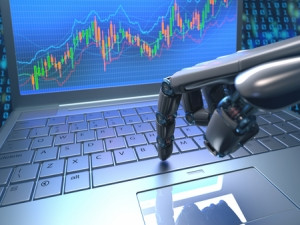
The rise of "fake news" may be giving media houses and social media networks a headache, but in the realm of investing, Old Mutual says whether information is based on fact or fiction is less of a concern.
The investment firm says the real value exists in an investor's ability to objectively read the market sentiment that the real or fake information is inciting, and it's using new tech to do it.
Since the beginning of this year, the investment group has been using a "machine-readable news tool" to sift through the deluge of data and news available online.
"The machine-readable news tool enables us to analyse large volumes of news articles on a daily basis in an objective, systematic way. It analyses key words and trends within news articles, and we are able to gauge what the overall sentiment and tone of the article is, in a speedy and efficient manner," explains Old Mutual Managed Equity Fund analyst Fawaz Fakier.
Fakier told ITWeb the availability of machine-readable news data goes back to 2012 but the technology is still in its infancy and "as far as we know, no other local competitors are using it".
Grant Watson, co-manager of the Old Mutual Managed Alpha Equity Fund, says a key output of the filtering tool is to gauge whether an article has a negative or positive connotation, and ascertain how this will impact investor behaviour.
Fakier says the impact of fake news is, however, bleeding its way into the investment world and there have been many examples in developed markets, especially in the US ? where algorithmic trading makes up a significant portion of the market ? where markets and fund performances are driven by various news releases, even if untrue. However, he says in SA, the impact is less pronounced for now but believes we are definitely moving in that direction.
"The tool is designed to analyse news from credible news sources. This is a key point. Whether an article contains fake news or not, we would definitely want to analyse it as it all forms part of the market's perception. It is this market perception and sentiment that ultimately influence stock prices."
Human intervention
Fakier says any material news will have an impact on sentiment, regardless if it is fake or not.
"It can never be a good thing if investors react to news that is untrue. When using any technology, it is critical to have human intervention and 'sanity checks' as part of the decision-making process."
Watson agrees, saying that in an era of information overload, "the combination of technology with human judgement will prove to be the most powerful investment tool of the future".
"By blending human analysis with mechanical objectivity, the model enables us to assess how any behavioural biases can be exploited."
The model which uses the machine-readable news tool has currently only been used in the Old Mutual Managed Alpha Equity Fund. However, based on its successful performance, Watson says Old Mutual is looking to roll it out across its global Managed Alpha fund in the future.
Rise of the machines
With the rise of more artificial intelligence (AI), machine learning and mechanisation in the business world, a common fear has emerged that human workers will one day be completely replaced by machines. Fakier believes computers will play a larger and larger part in the investment industry going forward, and says the trend is already evident.
"However, I certainly would not trust my money to be run by a computer just yet. We believe human intervention and analysis is critical and will always remain a major component of the investment industry, but one can no longer deny the power that computational power can bring."
He says fund managers shouldn't be too worried about their jobs yet because the sector still needs humans to maintain financial models and key inputs.
"There will always be a need for talented fund managers. It is integral to the efficient functioning of markets. Fund managers will always span across a wide spectrum of investment styles; that is what makes the art of investing such a beautiful thing. However, if machines do not form part of whatever strategy you prefer, you might find yourself with a significant disadvantage," he concludes.
Share